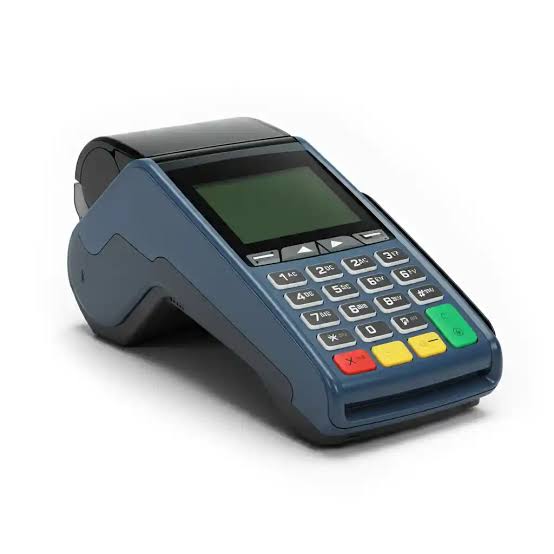By Zulaiha Danjuma
Point of Sale (POS) machines in Nigeria have revolutionized the country’s digital payment infrastructure, making banking services more accessible, especially in rural areas. As a crucial component of Nigeria’s Digital Public Infrastructure (DPI), POS machines have enabled millions of Nigerians to participate in the digital economy.
Digital Public Infrastructure refers to the underlying digital systems and services that enable financial transactions, payments, and other economic activities to take place efficiently and securely.
In Nigeria, POS machines, mobile payment platforms, and other digital payment systems are critical components of the country’s DPI, facilitating financial inclusion, economic growth, and access to financial services for millions of Nigerians.
The significance of POS machines in Nigeria’s financial landscape cannot be overstated. According to the CBN’s quarterly statistical bulletin, N 85.91 trillion worth of transactions was made using POS machines in the first half of 2024, a figure seven times the N 12.21 trillion recorded for ATM transactions within the same period. However, this growth in digital payments has also led to an increase in fraud risk.
To address this risk, the Central Bank of Nigeria (CBN) has taken a significant step by introducing a new directive requiring POS operators to install Global Positioning Systems (GPS) tracking devices on their machines. This move aims to enhance the security and integrity of Nigeria’s DPI.
In a circular signed by the Director for Payment Systems Supervision Department of the CBN, Ms Rakiya Yusuf, banks, fintechs, and other payment system operators were ordered to install GPS trackers on all POS machines within a specified timeframe.
The directive instructed all existing POS devices to be tagged with GPS within 60 days, while new devices were expected to be tagged before certification and activation.
Dr. Obioha Oti, Acting National Chairman of the Association of Mobile Money and Bank Agents in Nigeria, welcomed the policy, saying, “We welcome this policy because with geo-tagging we can pinpoint areas that are underserved by digital payment terminals, and fraud will go down also.”
However, he cautioned that the implementation requires careful consideration to avoid unintended consequences, adding, “What we industry players are saying to the CBN is to bring out measures to phase the process, so that within a period of 6 months or 1 year many operations within the system be it the Mobile Money Operators (MMOs), Payment Terminal Service Providers (PTSPs), Payment Service Banks (PSSBs) and the rest will be able to compile to enable us get the optimum opportunity the policy intends to give us.”
The potential impact of this policy on financial inclusion and security will be closely watched. While the geo-tagging policy aims to limit POS machine movement to a 10-meter radius from the registered address, enhancing DPI security and integrity, it also raises concerns about financial exclusion in rural areas.
As Surajo Abdullahi, a POS vendor, noted, “Many market people in rural communities don’t have banks or android phones, so they need these mobile POS vendors.” He added, “these mobile POS agents go from scheduled market days to scheduled market days, to help traders and customers in rural communities make instant payments and transfers to facilitate market activities”
The CBN’s directive on geo-tagging POS machines is a step towards strengthening Nigeria’s DPI, but its implementation will require careful monitoring and evaluation to ensure that it achieves its intended objectives without disrupting the digital payment ecosystem.
As Kabiru Tata, a provision store owner, said, “I didn’t hear about this new policy, and I’m worried about how it will affect my business. If I have to bear the cost of upgrading my POS machine, it will increase my operational costs, and I might have to pass it on to my customers by increasing transfer and cash collection fees.”
Normally, small businesses and petty traders who use the POS machines as both a means of cash collection for sales and transfer transactions of cash for customers; collect a minimum sum of N100 for every N5,000 to N10,000 transferred, to a maximum of N150 and up to N200 or N300 typically for transactions within and above the N15,000, N20,000 to N30,000 range.
A number of scheduled markets in Nigeria utilize mobile POS agents who travel to periodic markets in rural communities who have little to zero traditional banking infrastructure in order assist in conducting instant transfer and payment between traders and customers, with the new directive by the Apex bank such movements will no longer happen, leaving a widening gap for financial exclusion of rural communities
There are about 10 million POS devices out there in the country and only half of which are active. Dr. Oti said, while emphasizing that the reported figure of 4.2 million POS terminals was less than the actual number with many of these terminals serving multiple rural communities.
While, the CBNs policy may be seen as a timely intervention to cries of fraudulent activities and electronic transactions oversight all attributed to the rise of digital payment platforms, it is also worthy to mention that digital public infrastructure that facilitates easier payment processes may be adversely compromised if the policy is not critically examined and well implemented.


